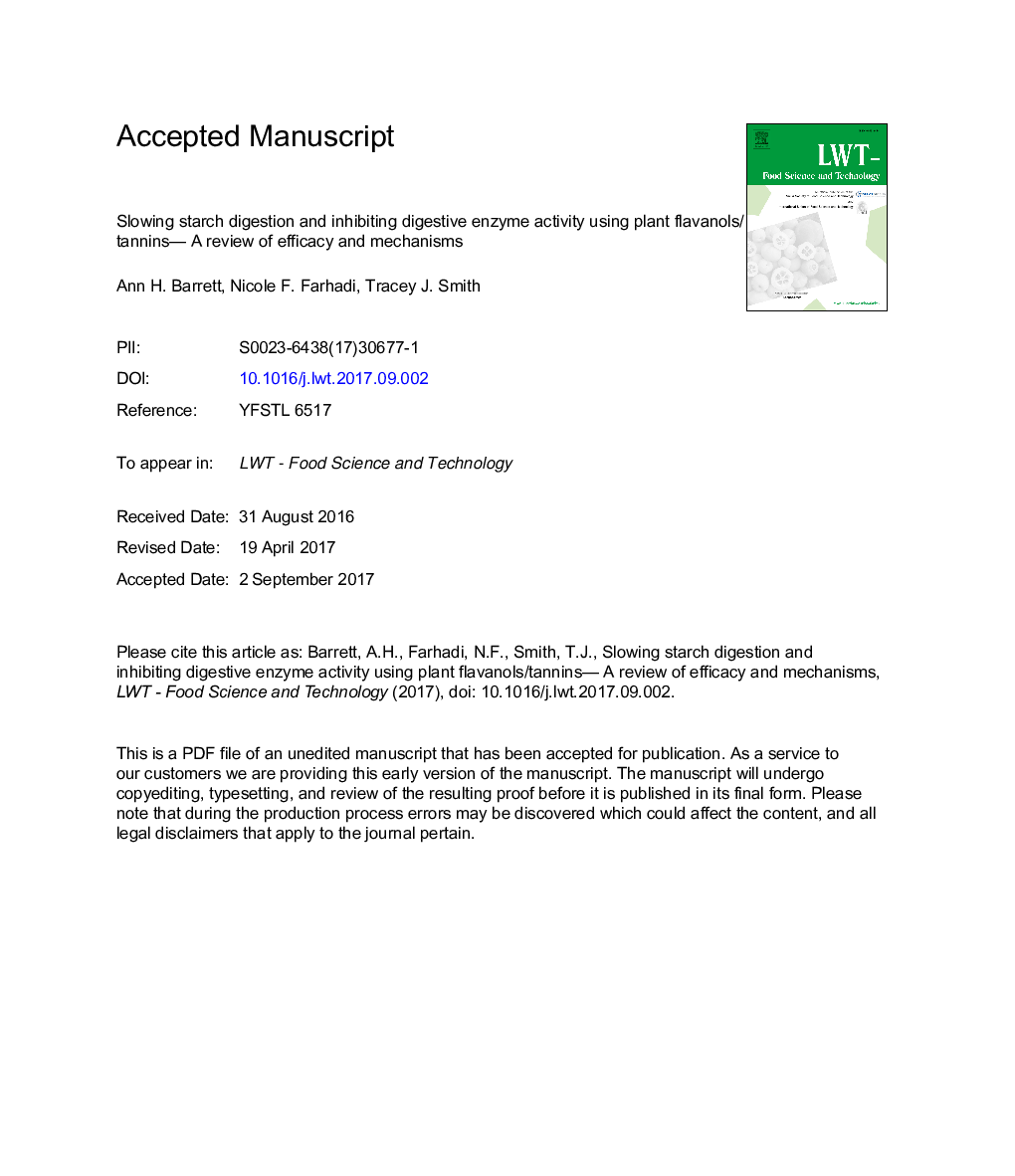| Article ID | Journal | Published Year | Pages | File Type |
|---|---|---|---|---|
| 8892139 | LWT - Food Science and Technology | 2018 | 26 Pages |
Abstract
Polyphenols are a heterogeneous group of phytochemicals that are found in plant-based foods, which have antioxidant and anti-inflammatory properties that may ultimately help protect against chronic diseases, such as cancer and cardiometabolic disease. Flavanols (i.e., a subclass of polyphenols), in particular, have been shown to promote glycemic control when consumed with a high-carbohydrate containing food item. Flavanol structures include complex, hydroxylated arrangements, also known as “tannins”, which associate strongly with proteins and thus are notable for their effect on dietary enzymes. Tannins are furthermore divided into non-hydrolysable proanthocyanidin (PAC) and hydrolysable fractions. This review includes recent findings of in vivo and in vitro effects of flavanols/tannins on blood glucose management and inhibition of the digestive enzymes α-amylase and α-glucosidase. Mechanisms underlying the interaction between flavanol structure and glycemic response (e.g., inhibition of starch digestion, altered transport and absorption of glucose, and the altered secretion of gastrointestinal hormones) are discussed, with an emphasis on the molecular basis for flavanol-enzyme interactions that lead to inhibition of enzyme activity.
Related Topics
Life Sciences
Agricultural and Biological Sciences
Food Science
Authors
Ann H. Barrett, Nicole F. Farhadi, Tracey J. Smith,
